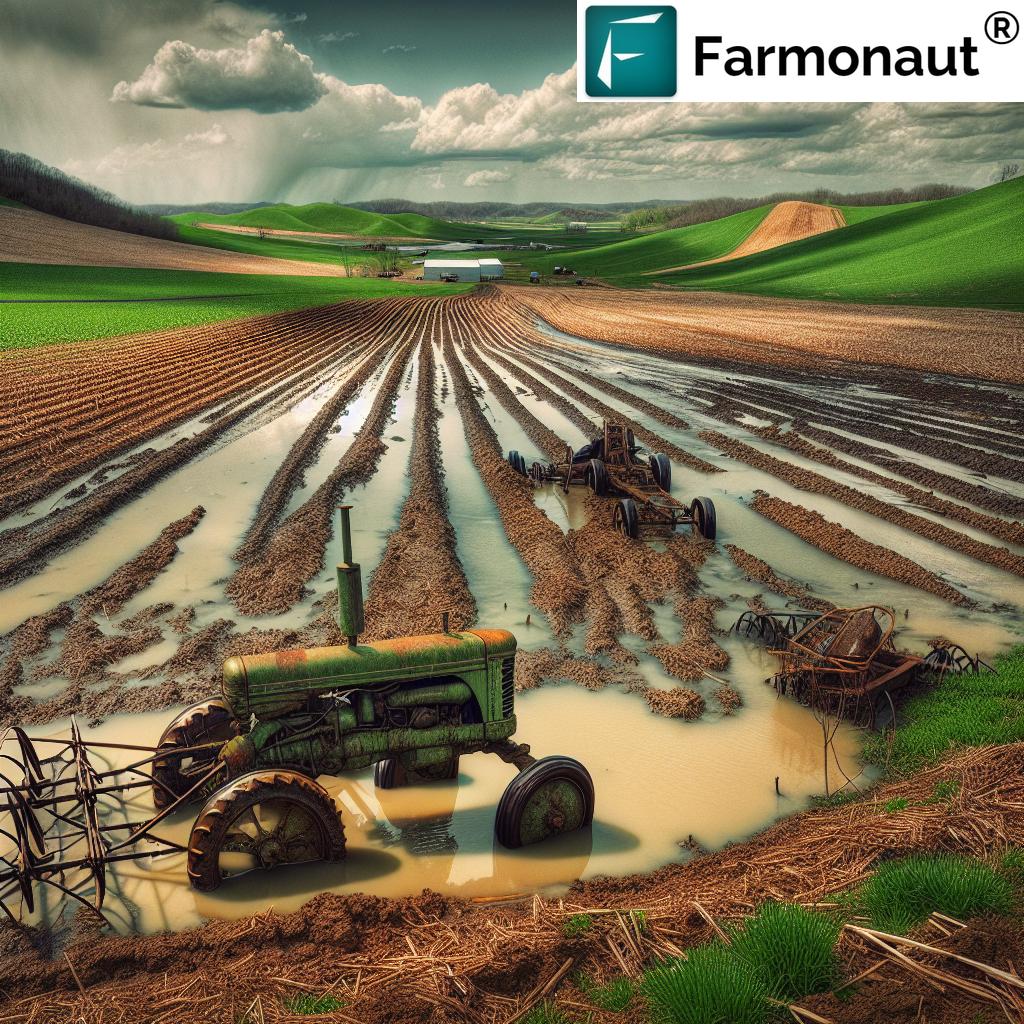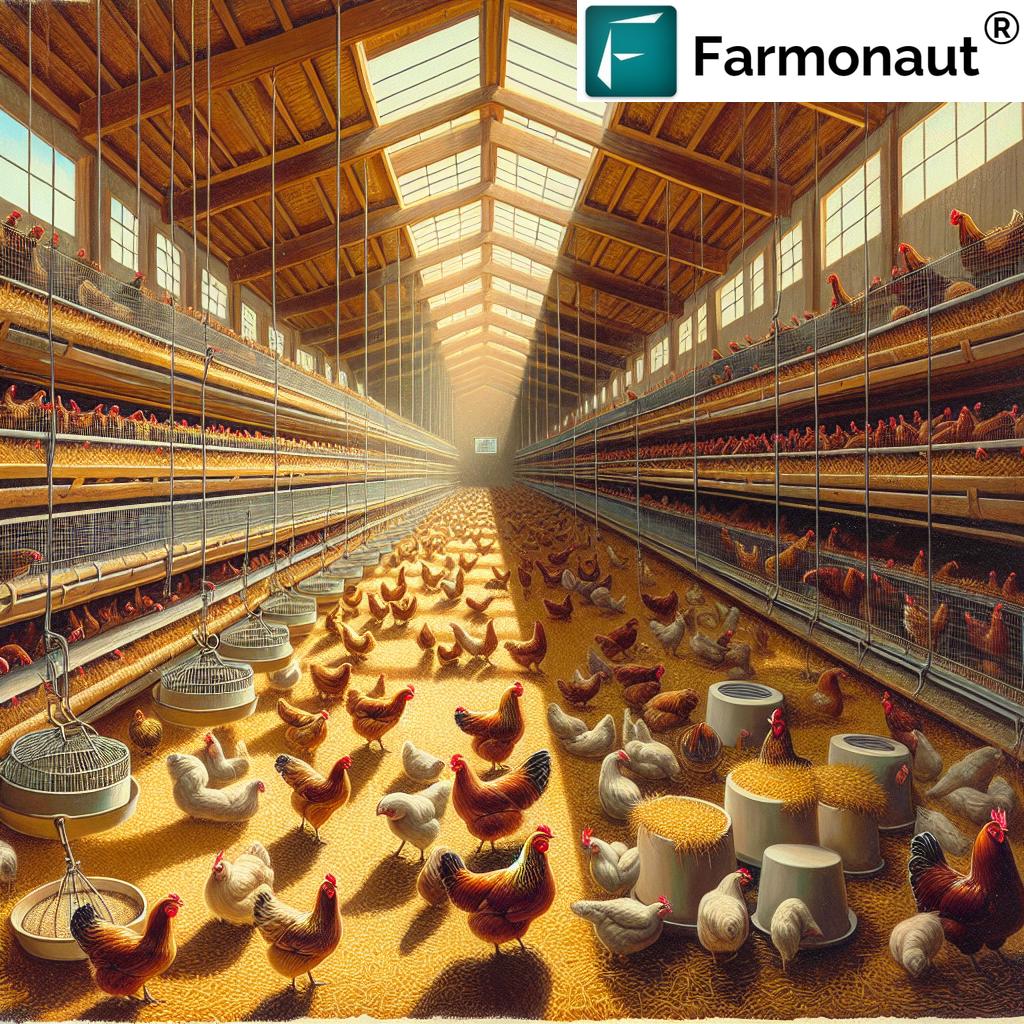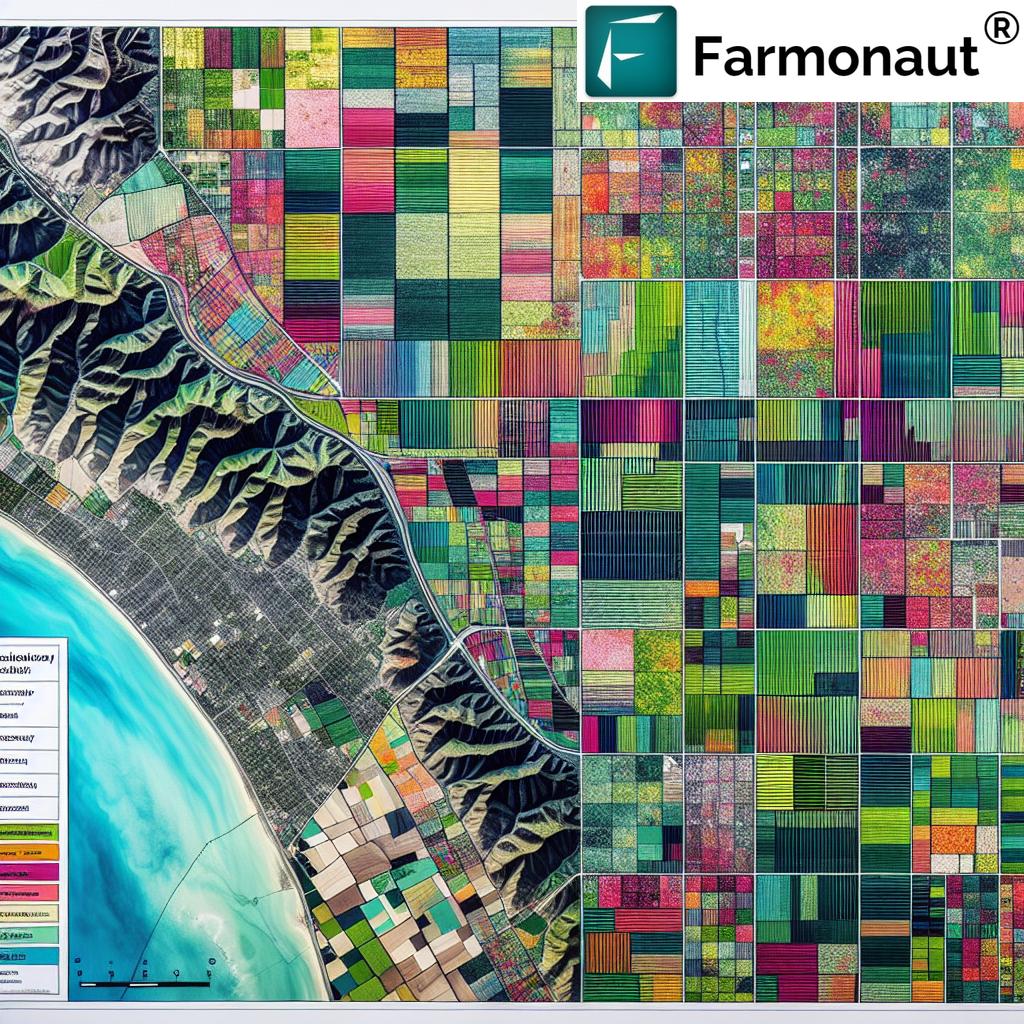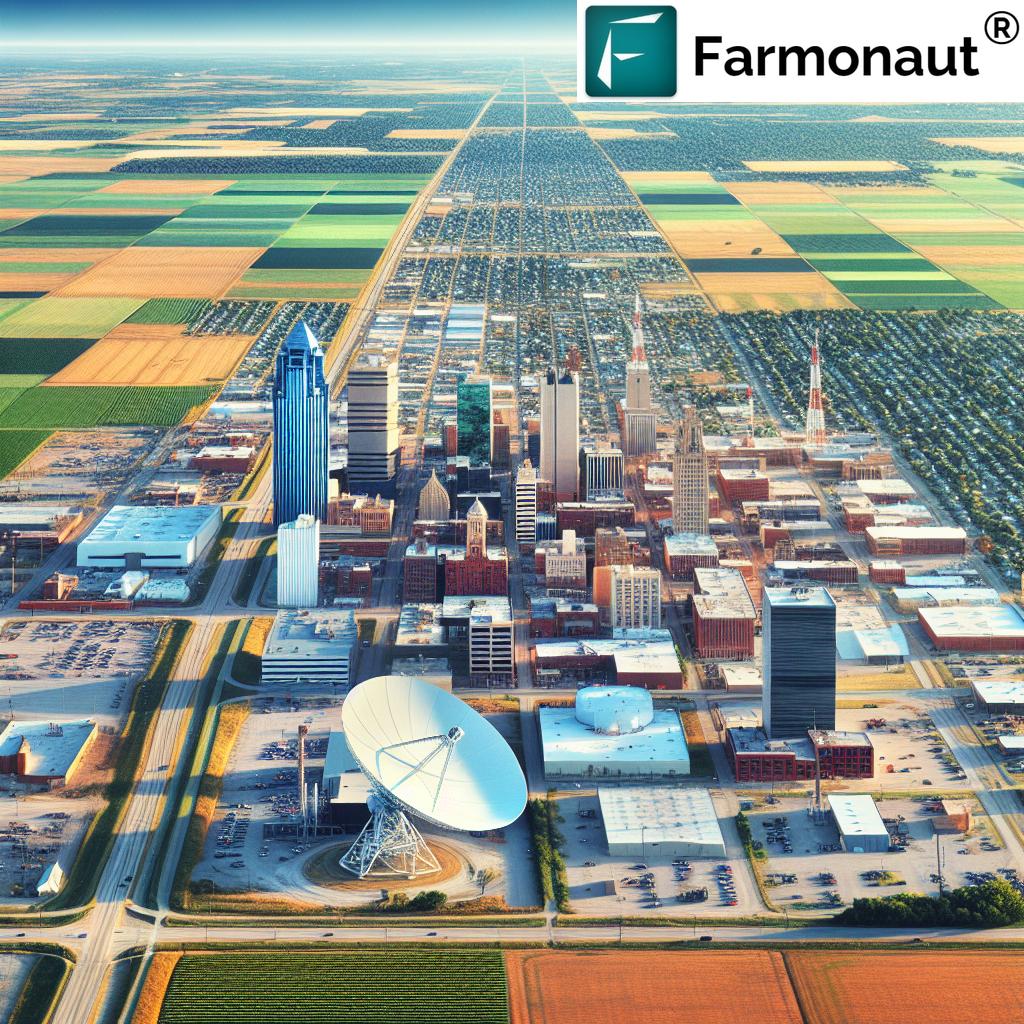From Classroom to Cornfield: A McLean County Couple’s 50-Year Journey in Illinois Farming
“McLean County farmers have cultivated corn and beans for over 50 years, adapting to modern techniques across thousands of acres.”
Welcome to the heartland of Illinois, where the story of farming in McLean County unfolds through the remarkable journey of Emily and Zane Freeland. Their 50-year adventure in corn and bean farming is a testament to the resilience, innovation, and dedication that define the agricultural spirit of Central Illinois. Join us as we explore their transition from the classroom to the cornfield, and discover how this couple has shaped local agriculture while preserving family farming traditions.
The Seeds of a Farming Legacy
Our story begins in the classrooms of McLean County, where Emily and Zane first crossed paths. Little did they know that their shared roots would grow into a lifelong partnership, both in marriage and in farming. As we delve into their journey, we’ll uncover the challenges and joys of rural farming life, and how they’ve adapted to the ever-changing landscape of modern farming techniques.
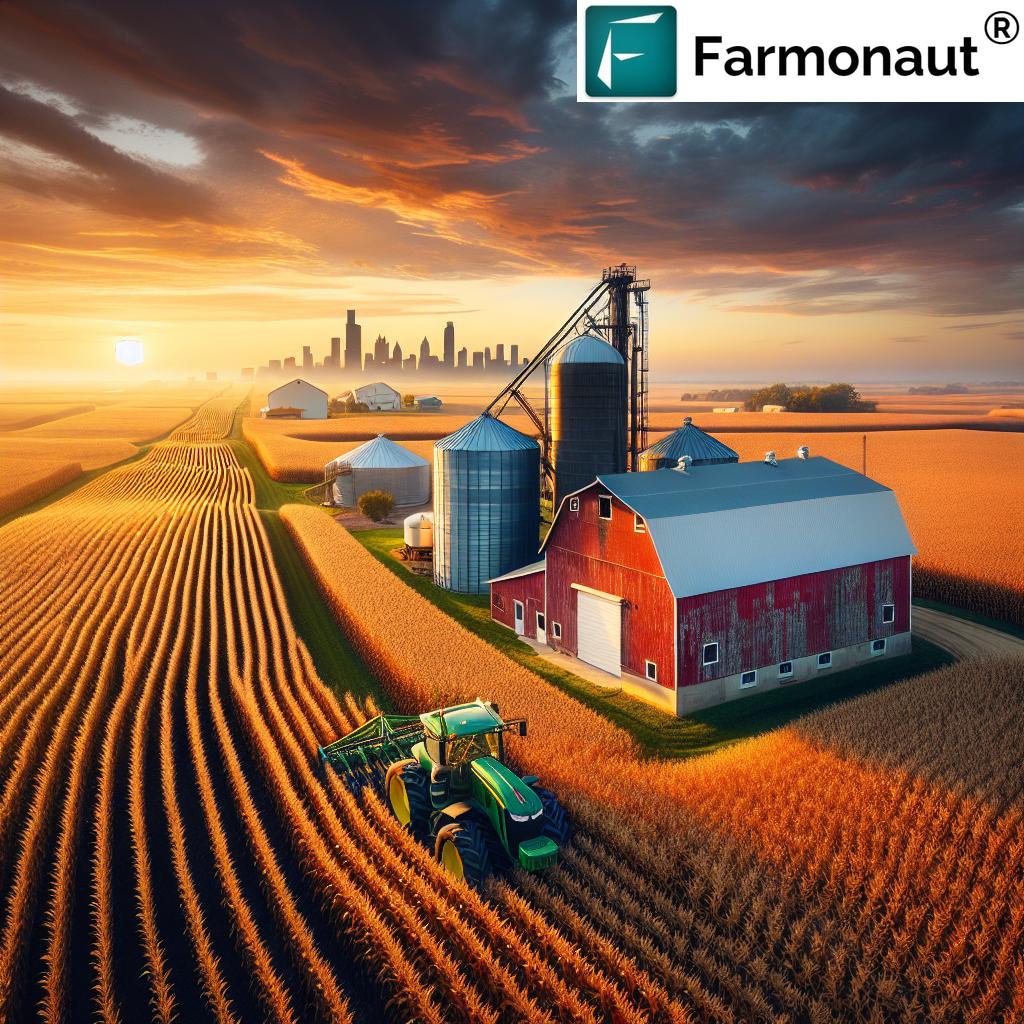
From their humble beginnings to managing thousands of acres, the Freelands’ story is one of perseverance, learning, and growth. Their journey reflects the broader evolution of agricultural communities in McLean County and offers valuable insights into the world of growing crops in Central Illinois.
A Love Story Rooted in the Land
Emily and Zane’s connection goes back to their grade school days, but it wasn’t until high school that their romance blossomed. Their first date at a Sadie Hawkins dance marked the beginning of a partnership that would span decades and acres. On July 19, 1969, they tied the knot, celebrating their union as they watched the historic moon landing on television during their honeymoon in Effingham.
Little did they know that their own giant leap was about to begin – from the familiar world of education into the vast and challenging realm of farming in McLean County, Illinois.
Transitioning from Chalkboards to Cornfields
Before embracing life on the farm, Zane spent time as a teacher. This background in education would prove invaluable as they navigated the learning curve of agricultural life. The transition from classroom to cornfield was not without its challenges, but it was a journey they were eager to embark upon together.
Emily, who had always dreamed of farm life, found herself facing a steep learning curve. Her first experience with farming responsibilities is a tale that many newcomers to agriculture can relate to. When asked to help in the field, she candidly admitted to Zane that she didn’t know how to drive a stick shift vehicle. His response? “Practice until you get good and drive back.” This sink-or-swim approach quickly became a metaphor for their farming journey – learning by doing, with a healthy dose of determination and support for each other.
As we reflect on the Freelands’ journey, it’s worth noting how modern tools like Farmonaut’s satellite-based farm management solutions could have eased their transition. Today’s farmers benefit from real-time crop health monitoring and AI-based advisory systems, making the learning curve less steep for those new to agriculture.
Growing Together: Challenges and Triumphs
The Freelands’ story is peppered with moments of trial and triumph. From Emily mastering the art of driving an auger wagon after just five minutes of instruction to the couple figuring out the intricacies of farm life together, their journey is a testament to teamwork and perseverance.
One amusing anecdote from their early days involves Emily’s attempt at making tapioca pudding. When she tried to scoop it out of the fridge, the spoon bounced off the pudding as if it were rubber! These lighthearted moments balanced the more serious challenges of managing a growing farm operation.
“A single farming couple in Illinois has witnessed and participated in five decades of agricultural evolution in the Midwest.”
Over the years, Zane expanded their operation to an impressive 2,400 acres of corn and beans, showcasing the growth potential in McLean County’s fertile lands. Today, they’ve scaled back to a more manageable 500 acres, reflecting the changing dynamics of family farming and the couple’s life stage.
Embracing Modern Farming Techniques
As the agricultural landscape evolved, so did the Freelands’ approach to farming. They’ve witnessed and adapted to numerous changes in farming practices, from traditional methods to the integration of cutting-edge technology.
Today’s farmers in McLean County benefit from advanced tools that the Freelands could only dream of when they started. For instance, Farmonaut’s API offers access to satellite and weather data, enabling precise decision-making for crop management. This technology represents a significant leap from the methods available when the Freelands began their farming journey.

The couple’s ability to adapt to these changes while maintaining their core values and family farming traditions is a hallmark of their success. They’ve embraced new technologies and techniques while preserving the wisdom passed down through generations of McLean County farmers.
The Heart of Local Agriculture
Emily and Zane’s story is more than just a tale of personal success; it’s a reflection of the broader agricultural community in McLean County. Their experiences highlight the challenges and opportunities faced by local farmers, from weather uncertainties to market fluctuations.
The couple’s journey underscores the importance of community in rural farming life. They’ve built relationships with neighboring farmers, shared knowledge, and contributed to the robust agricultural network that defines McLean County. This sense of community is crucial in overcoming the challenges of farming and celebrating its successes.
For those interested in the technological aspects of modern farming, Farmonaut’s API developer docs provide insight into how satellite data and weather information can be leveraged to enhance agricultural practices.
Family, Farming, and Future Generations
The Freelands’ legacy extends beyond their fields. With three daughters and six grandchildren, they’ve cultivated not just crops, but a family deeply rooted in the farming tradition. Their commitment to preserving family farming traditions while embracing innovation sets an example for future generations of McLean County farmers.
Today, the couple enjoys watching their grandchildren’s ball games and sharing meals out – a well-deserved respite from the demanding life of farming. These moments of family togetherness are the fruits of their labor, reminding us that at its core, farming is about nurturing not just the land, but the people it supports.
Adapting to Change: From Field to Table
The Freelands’ journey also reflects the evolving relationship between farmers and consumers. As interest in farm-to-table practices grows, farmers like Emily and Zane play a crucial role in educating the public about where their food comes from and how it’s produced.
Emily’s renowned cinnamon rolls and chocolate chip cookies, once famous among farmers in northern Illinois, symbolize the direct connection between farm and table. This personal touch in food production resonates with today’s consumers, who increasingly value knowing the source of their food.
Modern farmers can leverage tools like  and
and  to manage their farms more efficiently and connect with consumers interested in the farm-to-table movement.
to manage their farms more efficiently and connect with consumers interested in the farm-to-table movement.
Farming Challenges and Solutions in McLean County
Throughout their 50-year journey, the Freelands have faced and overcome numerous challenges typical to farming in McLean County. From unpredictable weather patterns to fluctuating market prices, their experiences offer valuable insights into the resilience required in modern agriculture.
- Weather Variability: McLean County’s climate can be unpredictable, with farmers facing everything from drought to excessive rainfall. The Freelands learned to adapt their planting and harvesting schedules accordingly.
- Market Fluctuations: Navigating the ups and downs of corn and bean prices has been a constant challenge. The couple’s ability to diversify and make informed decisions has been key to their longevity.
- Technological Adaptation: Keeping up with rapidly evolving farming technology has been both a challenge and an opportunity. The Freelands have embraced new tools and techniques to improve their efficiency and crop yields.
- Soil Management: Maintaining soil health over decades of intensive farming has required careful management and sustainable practices.
Modern solutions, such as those offered by Farmonaut, address many of these challenges. For instance, satellite-based crop health monitoring can help farmers make informed decisions about irrigation and pest management, reducing the impact of weather variability.
The Evolution of Corn and Bean Farming in Central Illinois
The Freelands’ story parallels the broader evolution of corn and bean farming in Central Illinois. Over the past five decades, they’ve witnessed and participated in significant changes:
- Precision Agriculture: The introduction of GPS-guided machinery and precision planting has revolutionized farming efficiency.
- Crop Varieties: Advances in seed technology have led to more resilient and higher-yielding crop varieties.
- Conservation Practices: There’s been a growing emphasis on sustainable farming methods to preserve soil health and reduce environmental impact.
- Data-Driven Decision Making: The use of farm management software and data analytics has become increasingly common, allowing for more informed decision-making.
Tools like  exemplify this evolution, offering farmers access to satellite data and AI-driven insights that were unimaginable when the Freelands started farming.
exemplify this evolution, offering farmers access to satellite data and AI-driven insights that were unimaginable when the Freelands started farming.
Timeline of the Freelands’ Farming Journey
| Year | Milestone/Event |
|---|---|
| 1969 | Emily and Zane marry, watching the moon landing during their honeymoon |
| Early 1970s | Transition from teaching to farming near Bethany in Moultrie County |
| 1980s | Expansion of farming operations, reaching 2,400 acres |
| 1990s | Adoption of early precision agriculture techniques |
| 2000s | Integration of GPS-guided machinery and advanced seed technologies |
| 2010s | Implementation of data-driven farming practices and sustainable methods |
| Present Day | Managing 500 acres, balancing modern techniques with traditional wisdom |
Lessons from a Half-Century of Farming
As we reflect on Emily and Zane Freeland’s 50-year journey in farming, several key lessons emerge:
- Adaptability is Key: The ability to adapt to new technologies and changing market conditions has been crucial to their longevity.
- Strong Partnerships Matter: Their partnership, both in marriage and in business, has been the foundation of their success.
- Community Connection: Engaging with the local farming community has provided support and shared knowledge.
- Balancing Tradition and Innovation: While embracing new techniques, they’ve maintained valuable traditional practices.
- Lifelong Learning: From Emily’s first day driving farm equipment to adopting modern farming technologies, continuous learning has been essential.
Earn With Farmonaut: Earn 20% recurring commission with Farmonaut’s affiliate program by sharing your promo code and helping farmers save 10%. Onboard 10 Elite farmers monthly to earn a minimum of $148,000 annually—start now and grow your income!
The Future of Farming in McLean County
As we look to the future of farming in McLean County, the Freelands’ story offers both inspiration and valuable insights. The agricultural landscape continues to evolve, with emerging technologies and changing consumer preferences shaping the industry.
Future farmers in McLean County will likely face new challenges, from climate change impacts to increasing demand for sustainable farming practices. However, they’ll also have access to advanced tools and technologies that can help them navigate these challenges more effectively.
The integration of satellite technology, AI, and data analytics in agriculture, as exemplified by platforms like Farmonaut, represents the next frontier in farming. These tools can help farmers make more informed decisions, optimize resource use, and increase yields while minimizing environmental impact.
Embracing Technology in Modern Farming
While the Freelands’ journey began in an era of traditional farming methods, today’s farmers in McLean County have access to a wide range of technological tools. These advancements are revolutionizing the way farms are managed and crops are grown:
- Satellite Imagery: Platforms like Farmonaut use satellite data to provide real-time insights into crop health, helping farmers make timely decisions about irrigation, fertilization, and pest control.
- AI and Machine Learning: Advanced algorithms can analyze farm data to predict crop yields, detect diseases early, and optimize resource allocation.
- IoT Sensors: Internet-connected devices can monitor soil moisture, temperature, and other crucial factors, providing farmers with up-to-the-minute information about their fields.
- Precision Agriculture: GPS-guided machinery and variable rate technology allow for precise application of inputs, reducing waste and improving efficiency.
- Farm Management Software: Digital platforms help farmers track operations, manage finances, and make data-driven decisions.
These technologies, while far removed from the farming practices of 50 years ago, build upon the foundation of knowledge and experience that farmers like the Freelands have accumulated over decades.
Sustainable Farming Practices in McLean County
As stewards of the land, farmers in McLean County are increasingly adopting sustainable practices to ensure the long-term health of their soil and the environment. The Freelands’ journey reflects this shift towards more sustainable farming methods:
- Cover Crops: Planting cover crops between growing seasons helps improve soil health, reduce erosion, and increase organic matter.
- Conservation Tillage: Reduced tillage practices help maintain soil structure and reduce carbon emissions.
- Precision Nutrient Management: Using data-driven approaches to apply fertilizers more efficiently, reducing runoff and improving crop utilization.
- Integrated Pest Management: Combining biological, cultural, and chemical methods to control pests while minimizing environmental impact.
- Water Conservation: Implementing efficient irrigation systems and water management practices to conserve this precious resource.
These practices not only benefit the environment but also contribute to the long-term sustainability of farming operations in McLean County.
The Role of Education in Modern Farming
The Freelands’ background in education has played a significant role in their farming success. Today, education remains crucial for farmers in McLean County, albeit in different forms:
- Continuing Education: Farmers regularly attend workshops, seminars, and conferences to stay updated on the latest agricultural practices and technologies.
- Online Learning: Digital platforms offer farmers access to a wealth of knowledge, from crop management techniques to business skills.
- Peer-to-Peer Learning: Farmer networks and mentorship programs facilitate knowledge sharing within the agricultural community.
- Agricultural Extension Services: These programs provide valuable research-based information and support to local farmers.
- Technology Training: As farming becomes increasingly tech-driven, training in new tools and software is essential for modern farmers.
The commitment to lifelong learning demonstrated by farmers like the Freelands is a key factor in the continued success and innovation of agriculture in McLean County.
The Economic Impact of Farming in McLean County
The Freelands’ 50-year journey in farming is part of a larger economic story in McLean County. Agriculture remains a cornerstone of the local economy, contributing significantly to employment, income, and community development:
- Job Creation: Farms like the Freelands’ provide direct employment and support a wide range of related industries, from equipment suppliers to food processors.
- Economic Multiplier Effect: Every dollar generated on the farm circulates through the local economy, supporting businesses and services in the community.
- Export Contribution: McLean County’s agricultural products, particularly corn and soybeans, contribute to Illinois’ role as a major agricultural exporter.
- Technological Innovation: The adoption of new farming technologies drives innovation and attracts investment in the agricultural sector.
- Rural Development: Successful farming operations help maintain the vitality of rural communities in McLean County.
The economic resilience demonstrated by farmers like the Freelands has helped McLean County weather various economic challenges over the past five decades.
Connecting Consumers with Local Agriculture
One of the most significant changes in agriculture over the past 50 years has been the growing interest in local food systems and farm-to-table practices. The Freelands’ story illustrates how farmers in McLean County are adapting to meet this demand:
- Farmers Markets: Local markets provide direct-to-consumer sales opportunities for farmers, allowing them to showcase their products and connect with the community.
- Agritourism: Some farms in the area have diversified by offering tours, pick-your-own experiences, or farm stays, providing additional income streams and educating the public about farming.
- Community Supported Agriculture (CSA): CSA programs allow consumers to subscribe to regular deliveries of fresh, local produce directly from farms.
- Farm-to-School Programs: Initiatives that bring local farm products into school cafeterias help educate children about agriculture and support local farmers.
- Social Media and Online Presence: Many farmers now use digital platforms to share their stories, connect with consumers, and market their products directly.
These connections between farmers and consumers help build a more resilient and sustainable local food system in McLean County.
Looking Ahead: The Next 50 Years of Farming in McLean County
As we consider the future of farming in McLean County, inspired by the Freelands’ half-century of experience, several trends and challenges come into focus:
- Climate Resilience: Farmers will need to adapt to changing weather patterns and more frequent extreme weather events.
- Technological Integration: The continued adoption of AI, robotics, and data analytics will reshape farming practices.
- Sustainable Intensification: Producing more food on existing farmland while reducing environmental impact will be crucial.
- Generational Transition: As experienced farmers retire, supporting and educating the next generation of farmers will be essential.
- Consumer Engagement: Building stronger connections between farmers and consumers will remain important for the industry’s success.
The lessons learned from the Freelands’ journey – adaptability, resilience, and a commitment to continuous learning – will serve as a valuable guide for future generations of McLean County farmers.
Conclusion: A Legacy of Growth and Adaptation
Emily and Zane Freeland’s 50-year journey in farming is more than just a personal story – it’s a testament to the enduring spirit of agriculture in McLean County, Illinois. From their early days of learning to drive farm equipment to managing thousands of acres, the Freelands have embodied the resilience, adaptability, and dedication that characterize successful farmers.
Their story reflects the broader narrative of farming in Central Illinois – a tale of embracing new technologies and techniques while honoring traditional wisdom and community values. As we look to the future of agriculture in McLean County, the Freelands’ experience offers valuable lessons in perseverance, lifelong learning, and the importance of strong partnerships.
The challenges facing modern farmers are significant, from climate change to market volatility. However, with tools like Farmonaut’s satellite-based farm management solutions and the enduring wisdom of experienced farmers like the Freelands, the agricultural community in McLean County is well-equipped to meet these challenges head-on.
As we celebrate the Freelands’ half-century of farming, we also look forward to the innovations and adaptations that will shape the next 50 years of agriculture in McLean County. Their journey from the classroom to the cornfield serves as an inspiration for current and future generations of farmers, reminding us of the vital role agriculture plays in our communities and our lives.
FAQ: Farming in McLean County, Illinois
- Q: What are the main crops grown in McLean County?
A: The primary crops in McLean County are corn and soybeans, as exemplified by the Freelands’ farming operation. - Q: How has farming technology changed over the past 50 years in McLean County?
A: Farming technology has evolved significantly, from basic machinery to GPS-guided equipment, precision agriculture techniques, and the use of satellite imagery and data analytics for farm management. - Q: What challenges do McLean County farmers face today?
A: Modern farmers face challenges such as weather variability, market fluctuations, adapting to new technologies, and maintaining sustainable farming practices. - Q: How important is agriculture to McLean County’s economy?
A: Agriculture is a cornerstone of McLean County’s economy, providing jobs, supporting related industries, and contributing to local and export markets. - Q: What sustainable farming practices are being adopted in McLean County?
A: Farmers are increasingly using cover crops, conservation tillage, precision nutrient management, and integrated pest management to promote sustainability. - Q: How can new farmers get started in McLean County?
A: New farmers can start by educating themselves through agricultural programs, seeking mentorship from experienced farmers, and utilizing resources from local agricultural extension services. - Q: What role does technology play in modern farming in McLean County?
A: Technology plays a crucial role, with farmers using tools like Farmonaut for satellite-based crop monitoring, AI-driven advisory systems, and data analytics for decision-making. - Q: How are McLean County farmers connecting with consumers?
A: Farmers are engaging with consumers through farmers markets, CSA programs, agritourism, and social media to promote local agriculture and farm-to-table practices. - Q: What is the future outlook for farming in McLean County?
A: The future of farming in McLean County will likely involve increased technological integration, a focus on sustainability, and adaptation to climate change while maintaining strong community connections. - Q: How has the role of women in farming changed over the past 50 years in McLean County?
A: Women like Emily Freeland have become increasingly involved in all aspects of farm management and decision-making, reflecting broader changes in the agricultural industry.




